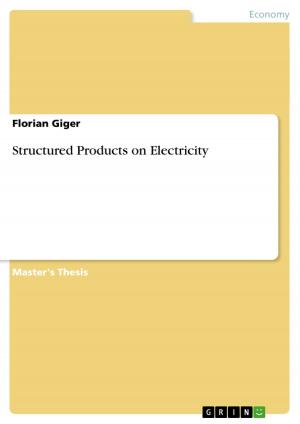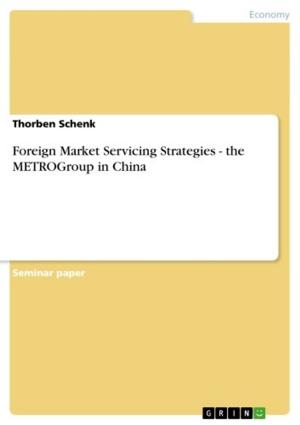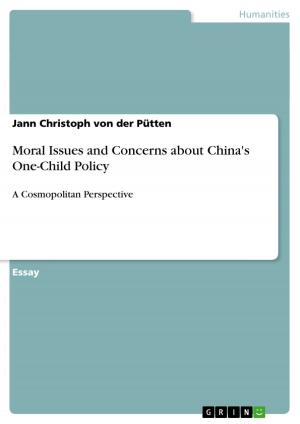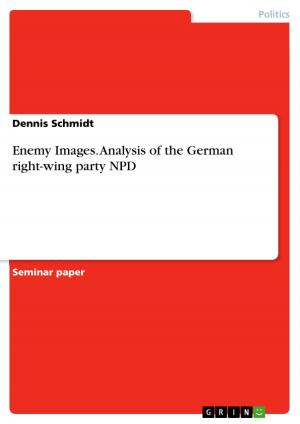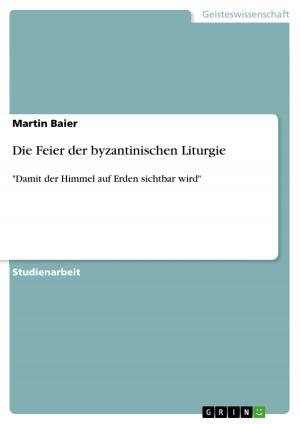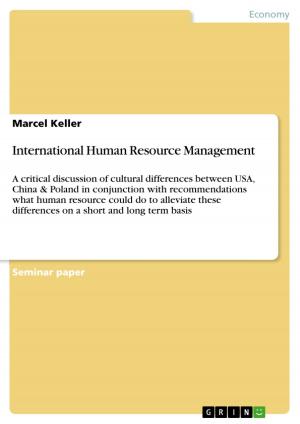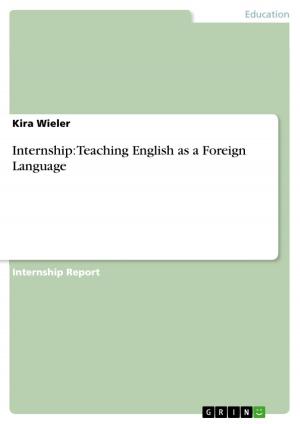The common European security and defence capability
The creation of a 'Holistic' security actor
Nonfiction, Social & Cultural Studies, Political Science| Author: | Tamir Sinai | ISBN: | 9783638866613 |
| Publisher: | GRIN Publishing | Publication: | November 27, 2007 |
| Imprint: | GRIN Publishing | Language: | English |
| Author: | Tamir Sinai |
| ISBN: | 9783638866613 |
| Publisher: | GRIN Publishing |
| Publication: | November 27, 2007 |
| Imprint: | GRIN Publishing |
| Language: | English |
Scientific Study from the year 2001 in the subject Politics - International Politics - Topic: European Union, grade: keine, erg International School - Hebrew University of Jerusalem, Israel (Department for Political Science), 48 entries in the bibliography, language: English, abstract: The first part of the paper deals with the most 'European' aspect of security creation, namely 'soft' security or the EU as a 'civil' power . The European concept of achieving security not by gunboat diplomacy, 'realpolitik' pacts and other methods of power politics but rather by 'breaking out of' the 'security dilemma' to achieve a common future guided by principles of co-operation and consolidation was novel to the world. Never before had such well-established, diverse and fiercely competitive nations undertaken to curtail their own sovereignty in favour of a combined future. When the colonies in North America joined to form the United States they shared a common anti-colonial struggle, a common language and a vast 'land of opportunity' before them. At first they did not give up a lot in terms of identity and freedom . In Europe the situation was so different that it precludes comparison altogether. But the 'European experiment' worked and as of yet has prevented another European 'civil war' between the West European states. The idea of 'soft' security was in fact implemented and has remained a unique achievement throughout the world. Other regional regimes, be it in Africa or Asia, have not been able to muster the same sort of determination for such an integrative effort. Thus, in the next section I will examine what the underlying values for this idea are and how these values determine Europe's security understanding and policies. 'Soft' security influences its security approach till today, and while Europe seeks increased involvement with peace creation in the world, the Balkans and Eastern Europe remain the EU's most pressing challenges and the venue of its most intense efforts.
Scientific Study from the year 2001 in the subject Politics - International Politics - Topic: European Union, grade: keine, erg International School - Hebrew University of Jerusalem, Israel (Department for Political Science), 48 entries in the bibliography, language: English, abstract: The first part of the paper deals with the most 'European' aspect of security creation, namely 'soft' security or the EU as a 'civil' power . The European concept of achieving security not by gunboat diplomacy, 'realpolitik' pacts and other methods of power politics but rather by 'breaking out of' the 'security dilemma' to achieve a common future guided by principles of co-operation and consolidation was novel to the world. Never before had such well-established, diverse and fiercely competitive nations undertaken to curtail their own sovereignty in favour of a combined future. When the colonies in North America joined to form the United States they shared a common anti-colonial struggle, a common language and a vast 'land of opportunity' before them. At first they did not give up a lot in terms of identity and freedom . In Europe the situation was so different that it precludes comparison altogether. But the 'European experiment' worked and as of yet has prevented another European 'civil war' between the West European states. The idea of 'soft' security was in fact implemented and has remained a unique achievement throughout the world. Other regional regimes, be it in Africa or Asia, have not been able to muster the same sort of determination for such an integrative effort. Thus, in the next section I will examine what the underlying values for this idea are and how these values determine Europe's security understanding and policies. 'Soft' security influences its security approach till today, and while Europe seeks increased involvement with peace creation in the world, the Balkans and Eastern Europe remain the EU's most pressing challenges and the venue of its most intense efforts.



